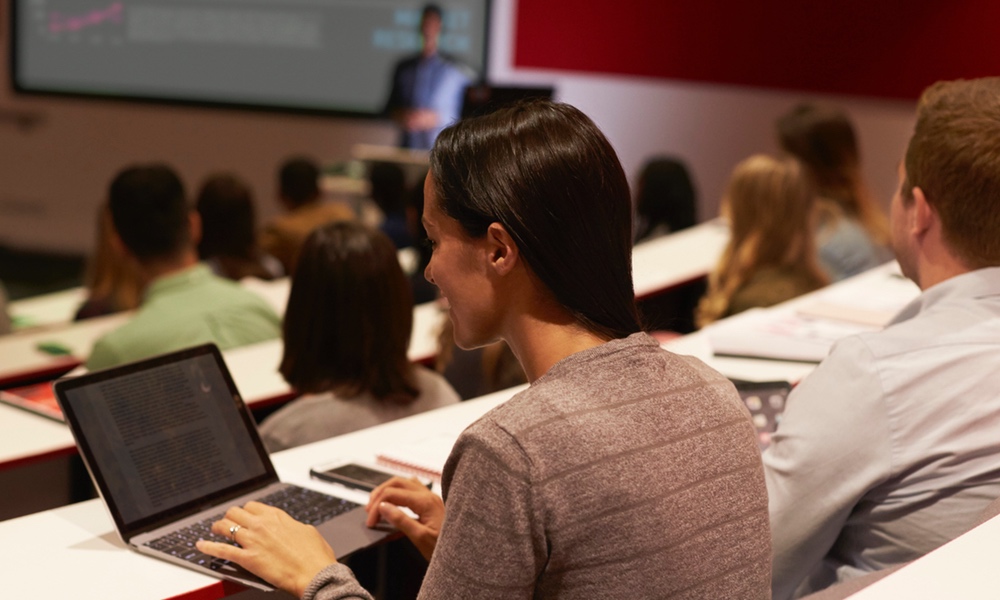Students heading to college this fall are probably getting ready to shop for a laptop, if they don't have one already. It is hard to imagine college students without their laptops. Some schools even require them.
Laptops clearly have educational value, but a study of college students finds that when laptops are taken to class, they are more likely to hinder, rather than help, learning.
Put another way, what's the point of taking a laptop to class if you're mainly going to use it to surf social media sites?
Psychologist Susan Ravizza and her team measured this online activity and found that students were spending an average of 37 minutes of the 100 minute class using their laptops for non-academic activities, with social media use leading the way.Students averaged less than five minutes per class using their laptops for web-based academic purposes, such as accessing lecture slides or other supplemental course material or looking up definitions.
Web usage during the break was not counted; the study only counted Internet usage during the 100 minutes of actual class time. And only the results for the 84 students who logged on for more than half of the semester's 15 classes were tallied.
Students averaged less than five minutes per class using their laptops for web-based academic purposes, such as accessing lecture slides or other supplemental course material or looking up definitions. They were mostly engaged in the type of web surfing we all do — checking messages and mail and social media, shopping and watching videos.
Students who spent more time on the web engaged in non-academic activities tended to have lower final exam grades. Expressed more statistically, non-academic Internet use was negatively associated with final exam score. It is likely that having a computer in class offered students who were already less attentive the kind of distraction they didn't need. No association was found between academic Internet usage and final exam score.
While laptops are undoubtedly useful when gathering information or preparing course assignments, there was no evidence that laptops in the classroom helped the students learn anything pertinent to the lectures, unless perhaps the course was on the Kardashians. In fact, having a laptop in class encouraged divided attention — students might as well have brought along fidget spinners. The study didn't monitor the use of smartphones and tablets during class, but students were asked about it and reported spending time both texting and visiting social media sites on these devices, too.
If nothing else, the study calls into question the policy of encouraging students to bring laptops to class, much less making them mandatory. Michigan State currently requires students to own a computer and recommends that it be a laptop, so students can take it to class with them. That recommendation may change as a result of these findings. Laptops may be useful in courses requiring access to data and calculation, but when it comes to lecture courses relying on listening, they present a distraction most students don't need.Students who spent more time on the web engaged in non-academic activities tended to have lower final exam grades.





